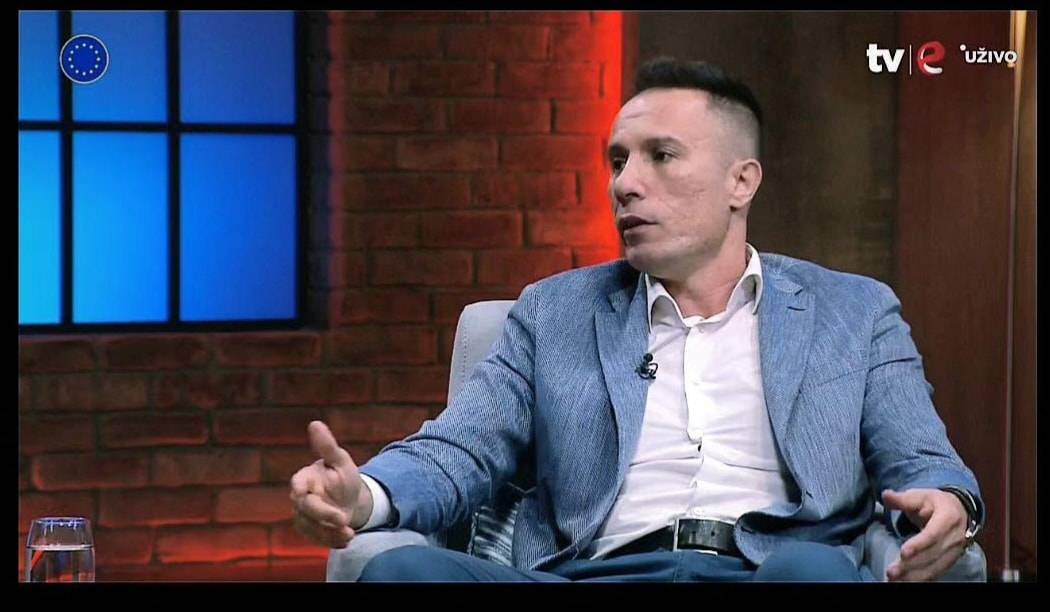Countless ways in which men become invisible victims of abuse within intimate relationships or family violence
When we consider abuse or violence, we often automatically envision a woman as the victim and a man as the perpetrator. Rarely is the opposite image imagined, if ever. Even when a male victim is considered, it is often portrayed in a comical way, intended to minimize the trauma. The typical image of an angry and agitated housewife, often disheveled in appearance, with curlers in her hair and a rolling pin in her hand, mocks abuse against men, and this image has been perpetuated for generations. You can find countless such images on the internet.
However, contrary to popular belief, more men than we can imagine face abuse in their relationships or are victims of family violence.
Research conducted in the United States shows that as many as 26% of homosexual men, 29% of heterosexual men, and 39% of bisexual men report some form of family violence. An even larger number, up to 48%, have experienced psychological and emotional abuse from their partners.
Even these alarming statistics are highly unreliable and likely underreported. The reason is that it is more challenging to obtain accurate data about men who have suffered or are currently enduring some form of violence, especially when compared to the female population. Moreover, men are taught not to be victims, especially victims of someone considered weaker in society. Being a man implies being strong: allowing a woman (or a same-sex partner) to hurt you is automatically seen as a lack of masculinity.
Prejudices about violence against men often exist. Men often struggle to find someone who will believe that they are victims of abuse. The prevailing notion of a man as an "aggressor" or the "stronger sex" contributes to the assumption that they somehow provoked their own abuse. In some cases, they have a justified fear of being ignored or even ridiculed for allowing the violence. The stereotype of the "henpecked husband" often depicts a man as helpless, incapable of standing up to his partner, leading to the conclusion that he deserves punishment for his weakness and lack of masculinity.
For these reasons, state institutions often do not take this problem seriously enough. Just like in the case of men as victims of rape, men who are victims of family violence are often met with reactions like "it's not that bad," "you have to deal with it," or even "why can't you protect yourself from that little woman?"
If the victim is a homosexual, bisexual, or transgender person, institutions often show a lack of willingness to address such cases.
When it comes to abusive relationships, there will always be people who wonder, "Why don't you just leave?"
And for men, the reasons are similar to those for women.
It is difficult to admit that violence is happening at all. Many men take the blame upon themselves, believing that they deserved it and must endure it. They often feel that they provoked the violence through their failures as men, providers for the family, and fathers. This is especially true in situations where their traditional role is changing. Job loss, demotion at work, sudden family impoverishment not only affect their self-confidence but also how they perceive their role as providers. Often, this leads to entering a vicious cycle of abuse, from which it is difficult to escape and return to their previous role.
Similarly, sexual dysfunction issues often complicate the situation. Sexual dysfunctions often arise when a couple is under pressure to have children immediately. Depression or the cycle of violence itself further hinder men from enjoying their sexual role, which can lead to emotional abuse and worsen the dysfunction that triggered the violence.
Many men are unaware that relationships can be different and believe that all relationships and marriages follow the same pattern. This is especially true for men who come from families where violence was common or have experienced it as a daily occurrence. They often find themselves in social circles where similar dysfunctional patterns in family dynamics exist and are unaware that relationships can be different.
Religion can also play a significant role, as divorce is often considered a sin.
Leaving a relationship often entails leaving one's social circle (friends, acquaintances), which is a significant loss of support that is most needed at that time. The fear of "what will people think" often influences the decision to stay and endure.
When the victim is a homosexual or bisexual person, their sexual orientation often adds an extra layer of fear. There is often the fear that the abandoned partner will reveal their sexual orientation at work or to their family. If the victim is young or inexperienced, the abuser may use blackmail to dissuade them from leaving, claiming that it will confirm that same-sex relationships are sick and deviant, and that no one will believe them.
Men may stay in relationships out of fear for the safety of others, such as beloved pets or children. If there is no way for them to leave with the victim, the abuser often threatens to harm these dependents, showing what the consequences would be. When children are involved, the situation becomes even more complicated: many men stay in relationships or marriages to protect the children; if they leave, the violence could be redirected towards the children. There is also a fear of losing custody, losing all contact with the children, or, even if they gain custody, not having the means to support the children on their own.
The most dangerous situation is when men cannot leave the relationship due to financial dependency. In long-term relationships, finances are often intertwined, and it is challenging to separate financially. Abusers often intentionally put the victim in a dependent position to prevent them from leaving (e.g., prohibiting work, confiscating earned money, taking possession of all assets). Institutions provide little or no assistance to men because most resources focus on women as victims.
To address this situation, you must first be aware of what is happening. If you have been in a toxic relationship for many years, it can be challenging to call things by their proper names because you may feel guilty or ashamed. Share your concerns with a trusted person and seek professional help to better understand your situation and make a decision on how to proceed. The process of acceptance, decision-making, and change can be lengthy, but it is essential to start.

Other news

Guest appearance on TV Adria
The founder of the Center for the Protection of Men's Rights and lawyer Bojan Vujović was a guest on TV Adria on...

Guest appearance on TV Nikšić
The founder of the Center for the Protection of Men's Rights and lawyer Bojan Vujović was a guest on TV...

Guest appearance on TV E live
The founder of the Center for the Protection of Men's Rights and lawyer Bojan Vujović was a guest on TV E...

 +382 67 224 880
+382 67 224 880 centarzazastitupravamuskaraca@gmail.com
centarzazastitupravamuskaraca@gmail.com
